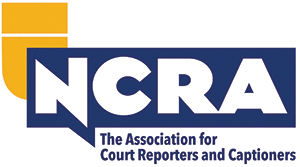While Congressional inactivity often garners significant headlines, what the nation’s legislative body has accomplished behind the scenes regarding education policy deserves to be commended. In addition to working on the Elementary and Secondary Education Act and the Every Student Succeeds Act, Congress ended 2015 by passing an extension of the federal Perkins Student Loan program, which had expired in September 2015. The Perkins loan program is the nation’s oldest student loan program and offer low-income students, in particular, a chance to make college affordable by offering relatively low-dollar and low interest rate loans with flexibility in repayment.
With significant activity on the education front throughout 2015, there is hope that Congress will consider reauthorizing the Higher Education Act in 2016. Since the new Congress began 14 months ago, NCRA’s government relations department has been active in lobbying for one specific program found within the Higher Education Act: the Training for Realtime Writers Grants. The Training for Realtime Writers grants go to court reporting and captioning schools to train more realtime-capable writers who can go to meet the needs of the more than 48 million Americans who are deaf and hard of hearing.
Specifically, the funding can go to creating online learning programs, improve existing facilities and hardware used by students, recruiting more students, and pursuing innovative teaching methods. With an estimated 5,500 new jobs in the court reporting and captioning fields by 2018, these grants are critical to ensuring that court reporting programs are able to meet that need. Court reporting and captioning offer vibrant careers. With growing consumer demand in the CART captioning field coupled with the FCC’s best practices for captioning quality, the demand for excellent CART and broadcast captioners has never been higher.
Obviously, the Higher Education Act involves much more than this specific grant program. In 2015, the Senate held eight hearings on issues as diverse as college affordability, accreditation, institutional risk sharing, innovation in higher education, and sexual assault. While some observers expect to see major changes within these key areas, Congress is likely to pursue a more incremental change if legislation is advanced. With the 2016 presidential elections right around the corner, Congress is unlikely to pursue some of the more controversial measures within higher education and focus on areas where there is broad agreement among Democrats and Republicans.
In order to ensure that the Training for Realtime Writers grants remain funded and financial opportunities are given to court reporting and captioning programs, it is incumbent on NCRA’s members to contact their elected officials to ensure that they understand what an important issue this is. There is an old axiom that exists in politics in general: If you aren’t at the table, you are on the menu. This is why we need you. Making sure that those who you send to Congress know about what issues are important to you is critical to ensuring that the government works for you and not against you.
If you have any questions on how to help ensure that opportunities continue to exist for court reporting and captioning programs to receive federal funding, please contact NCRA Director of Government Relations Adam Finkel directly at afinkel@ncra.org and we can ensure that your voice is heard.






